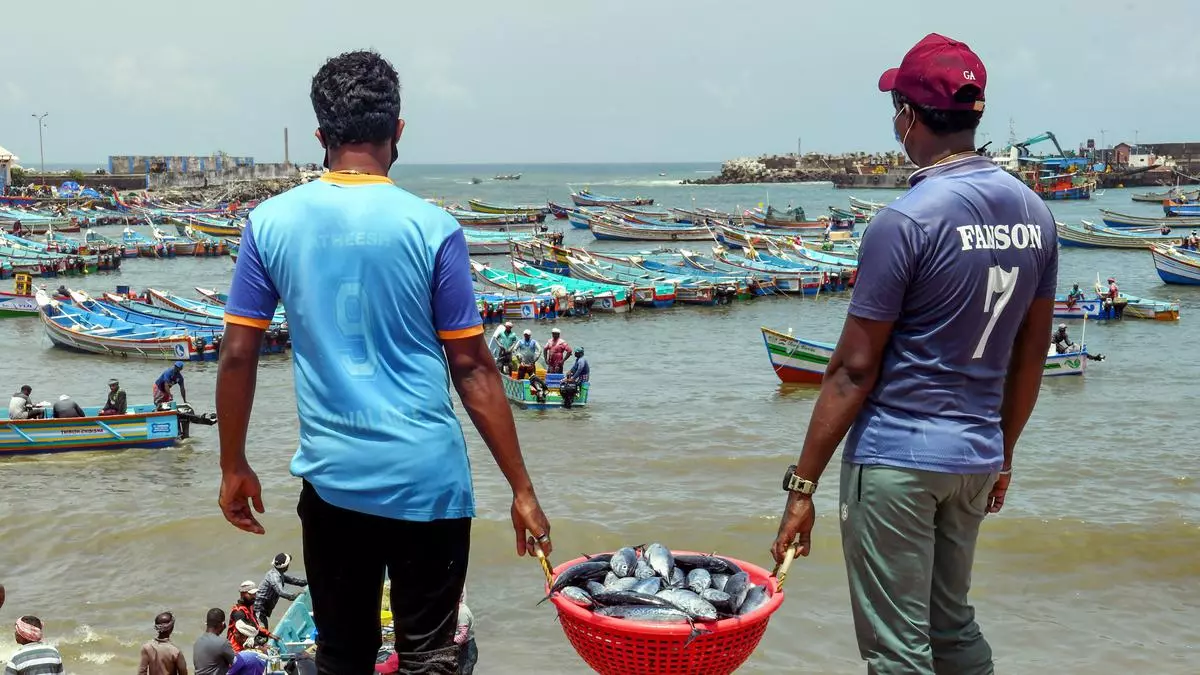Inland fish production doubles 131 lakh tonnes since 2014, says Minister Rupala
Fisheries, Animal Husbandry and Dairying Minister Parshottam Rupala has said that the country’s inland fish production, which has 75 per cent share in total fish production of the country, has more than doubled to 131 lakh tonnes (lt) in the last nine years on the back of government’s initiatives to boost the sector. India is the third largest fish producer in the world, having a share of 8 per cent in the global production.
Addressing media on Thursday, Rupala said that a ‘Global Fisheries Conference India 2023’ is being organised by the Department of Fisheries in Ahmedabad during November 21-22 to discuss immense potential as well as challenges in the sector. The inaugural coincides with World Fishery Day. Gujarat, of late, has emerged as a major investment destination for both aquaculture as well as marine products.
Stressing that the deliberation at the two-day event will help the government in preparing a roadmap for the fishery sector, he said more than 5,000 people from across the world are expected to attend it. The government has invited representatives of embassies of over 50 countries as well as FAO, World Bank and ADB.
Rupala highlighted that the inland fish production has grown to 131 lt in 2022-23 from 61 lakh tonnes in 2013-14. The output was only 2 lt in 1950, he added. India’s total fish output is estimated to be 174 lt in 2022-23.
The minister said that the government has provided for around ₹38,000 crore under different schemes including Pradhan Mantri Matsya Sampada Yojana (PMMSY) launched in 2020-21, which is much higher than the cumulative outlay for this sector during 1947-2013 period. The minister also said that the government is providing kisan credit card (KCC) and insurance to fish farmers.
Officials said that the average annual growth of the fisheries sector in India was 8.6 per cent during last nine years and the sector contributes about 1 per cent to the GDP while 3 crore fishers and fish farmers earn their livelihood at both primary level and in the value chain.
India had exported fish and fish products worth $8.09 billion during 2022-23, out of which a major chunk was of frozen shrimp ($5.48 billion).
In a separate event, Rupala appealed to people in the cooperative sector to expand their area of work and simultaneously ensure that people at the last mile of the delivery system are not left out from different welfare schemes of the government.
Inaugurating the All India Cooperative Week, organised by National Cooperative Union of India (NCUI), Rupala said that cooperatives should play an important role in creating awareness about ‘Viksit Bharat Sankalp Yatra’. “The cooperatives have huge network and reach in the country. The cooperative workers should disseminate information about the benefits of this yatra all over the country, and work as Cooperative Senas with collective responsibility,” he said.
The minister asked cooperative leaders to adopt international best cooperative practices, citing successful models from countries like the US, Germany and Japan. He also mentioned about the electrification in the US was done through cooperatives which is not known to many people.
Pointing out a gap, Rupala said there is lack of comprehensive employment data in cooperatives, despite the sector being a significant job provider. He suggested NCUI to compile such information across all cooperative segments.
